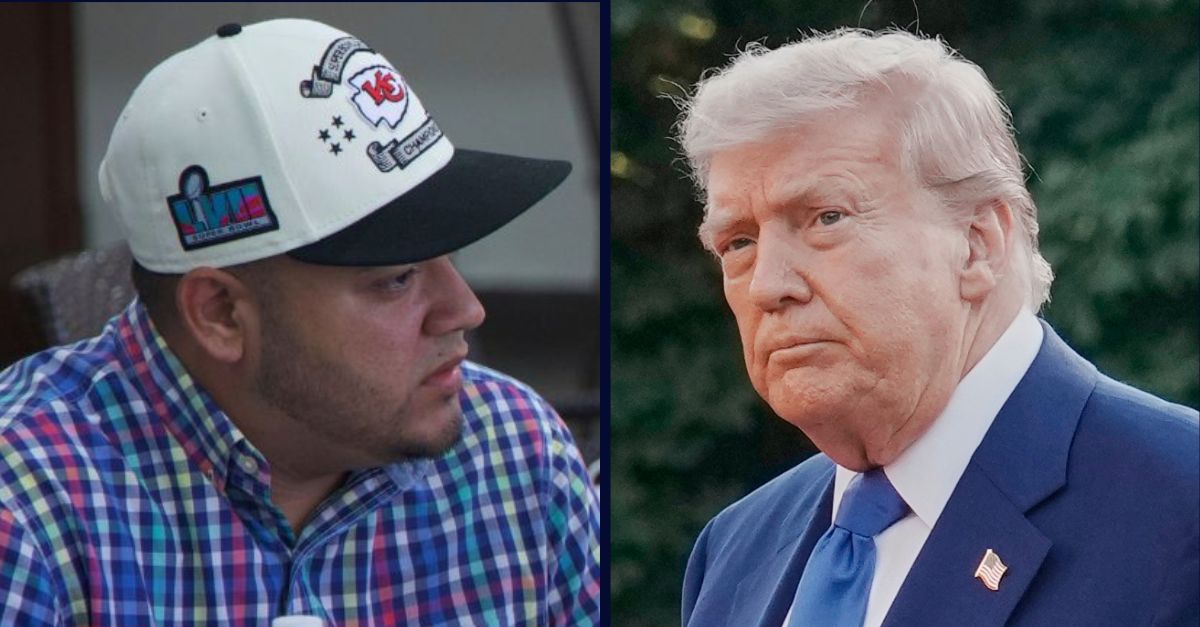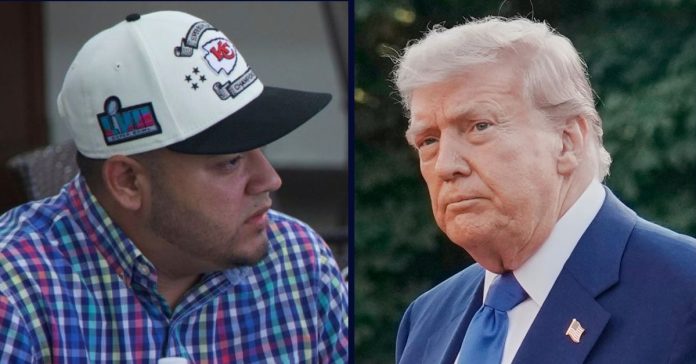
Left: Kilmar Abrego Garcia, a Salvadoran citizen who was living in Maryland and deported to El Salvador by the Trump administration, speaks in a hotel restaurant in San Salvador, El Salvador, Thursday, April 17, 2025 (Press Office Sen. Van Hollen, via AP). Right: President Donald Trump arrives for a formal dinner at the Paleis Huis ten Bosch ahead of the NATO summit in The Hague, Netherlands, Tuesday, June 24, 2025 (AP Photo/Markus Schreiber).
A Maryland man whose wrongful deportation became synonymous with the Trump administration”s anti-immigration agenda is out of jail and heading home, according to his defense attorney.
Kilmar Abrego Garcia, 30, left Tennessee on Friday in order to reunite with his family in the Old Line State, attorney Sean Hecker said.
“Today, Kilmar Abrego Garcia is free,” the lawyer said in a statement. “He is presently en route to his family in Maryland, after being unlawfully arrested and deported, and then imprisoned, all because of the government’s vindictive attack on a man who had the courage to fight back against the Administration’s continuing assault on the rule of law. He is grateful that his access to American courts has provided meaningful due process.”
Love true crime? Sign up for our newsletter, The Law&Crime Docket, to get the latest real-life crime stories delivered right to your inbox.
Abrego Garcia, of course, has two distinct sets of lawyers for his separate-but-intertwined legal cases – one civil and one criminal.
While the former case captured national attention since the nascent days of the White House’s third-country deportation program that began in March, the latter had kept the dual plaintiff-and-defendant in pretrial detention in Tennessee’s Putnam County Jail since early June.
For months before he was brought back stateside, Abrego Garcia was imprisoned in El Salvador – with most of his time spent at a notorious prison known as The Terrorism Confinement Center (CECOT).
His return to the United States came with federal criminal charges of human smuggling filed in Nashville. Abrego Garcia has flatly denied those allegations – framing the criminal case as a matter of selective and vindictive prosecution. In a recent court filing, his criminal defense team alleged that “high-ranking Executive Branch officials are retaliating against Mr. Abrego for fighting his removal and winning.”
Immigration officials, for their part, say they intend to deport Abrego Garcia in the event he makes bail in the Volunteer State. But this position has not been consistent across the federal government.
At the same time, the U.S. Department of Justice implored the judge overseeing the criminal case not to grant release – over the fear he would be detained by the Department of Homeland Security (DHS) and subsequently deported again, perhaps back to El Salvador.
In late July, U.S. District Judge Waverly Crenshaw, Jr., a Barack Obama appointee, signed off on the release order, which went into effect on Friday.
And, should the Trump administration attempt to re-deport Abrego Garcia, it must provide at least 72 hours notice of its intent to do so.
The ball is in the government’s court.
If officials attempt to remove him from the country again, they will have to drop the criminal charges. The notice requirement of his release order would give him ample opportunity to throw a legal wrench in the works. And, Abrego Garcia is protected from immigration detention by a separate court order in his civil case.

